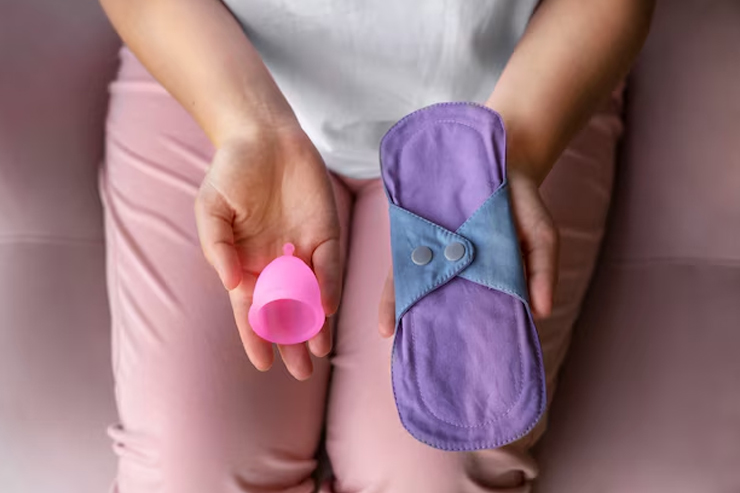
Menstrual self-care: Listening to your body and hormonal health
Menstruation is a universal biological process for girls and women worldwide, but menstruation is stigmatised, resulting in myths and poor hygiene habits. Menstrual hygiene needs to be championed by people, communities, and institutions. It requires undoing deep-seated societal norms and removing the stigma around menstruation. The same can be done through education initiatives that involve talking about menstruation in schools, in workplaces, and in community centres. Giving correct information and removing myths and misconceptions empowers women and girls to make informed choices about their menstrual health. Every day, menstrual hygiene is required for a variety of reasons:
This article is authored by Keerti Khetan, Director, Dept of Obstetrics & Gynaecology at the CK Birla Hospital, Delhi
Neem and Turmeric: Natural Acne Remedies for Clear Skin
1. Health and well-being

Menstrual hygiene in the correct manner reduces the possibilities of infections and other problems, keeping girls healthy and in a good general state.
2. Education and opportunities
Maintaining menstrual hygiene, we allow girls to go to school daily and have educational and professional opportunities without any break because of menstruation.
Practical menstrual hygiene tips:
Some tips on maintaining good menstrual hygiene are given below:
1. Selecting the right menstrual product
* Sanitary pads
* Tampons
* Menstrual cups
* Period underwear
2. Change sanitary products frequently
Change sanitary pads or tampons every 4-6 hours to avoid bacterial growth and smell.
Don't Miss:10 Indian States That Are Making Menstrual Products Accessible To Girls
3. Proper disposal
Dispose of used sanitary products in sanitary bins or sanitary disposal units to ensure cleanliness and avoid causing pollution to the environment.
4. Practice good hygiene

* Clean genital area daily with warm water (avoid using abrasive soap or douching).
* Both before and after sanitary product change, wash your hands to avoid germs and infection spread.
5. Choose comfortable clothing
Wear loose-fitting, ventilated clothes during menstruation to avoid discomfort and allow air circulation.
How to take care of yourself during periods
1. Controlling cramps and discomfort:

* Apply a heating pad or hot water bottle on the abdomen.
* Light exercises such as stretching or walking are helpful.
* Painkillers such as ibuprofen may be taken (in consultation).
2. Nutrition
* Consume iron-rich foods (red meat, legumes, spinach) to replace lost iron.
* Drink plenty of water.
* Steer clear of too much caffeine, salty foods, and sweet treats that contribute to bloating or mood swings.
3. Emotional and mental wellness
* Rest when fatigued.
* Meditate, journal, or practice mindfulness.
* Discuss feelings, mood swings are normal because of the hormonal changes.
4. Keep a track of your periods
* A calendar or app will track your cycle.
* Identifies patterns, regulates symptoms, and notices irregularities.
When to visit a doctor
* Heavy bleeding (soaking more than one tampon or pad per hour)
* Pain that is severe and is not relieved by over-the-counter pain medicine
* Spasmy or irregular periods, missed periods, or intervals between cycles
* Unusual odour or discharge
Menstruation is not all cyclical suffering until you reach the stage of integrating it into your daily routine.
Don't Miss:8 Must-Pack Essentials for Women While Travelling To The Hills
If you liked this story, then please share it. To read more such stories, stay connected to HerZindagi
Image Credit: freepik.
Also watch this video
Herzindagi video